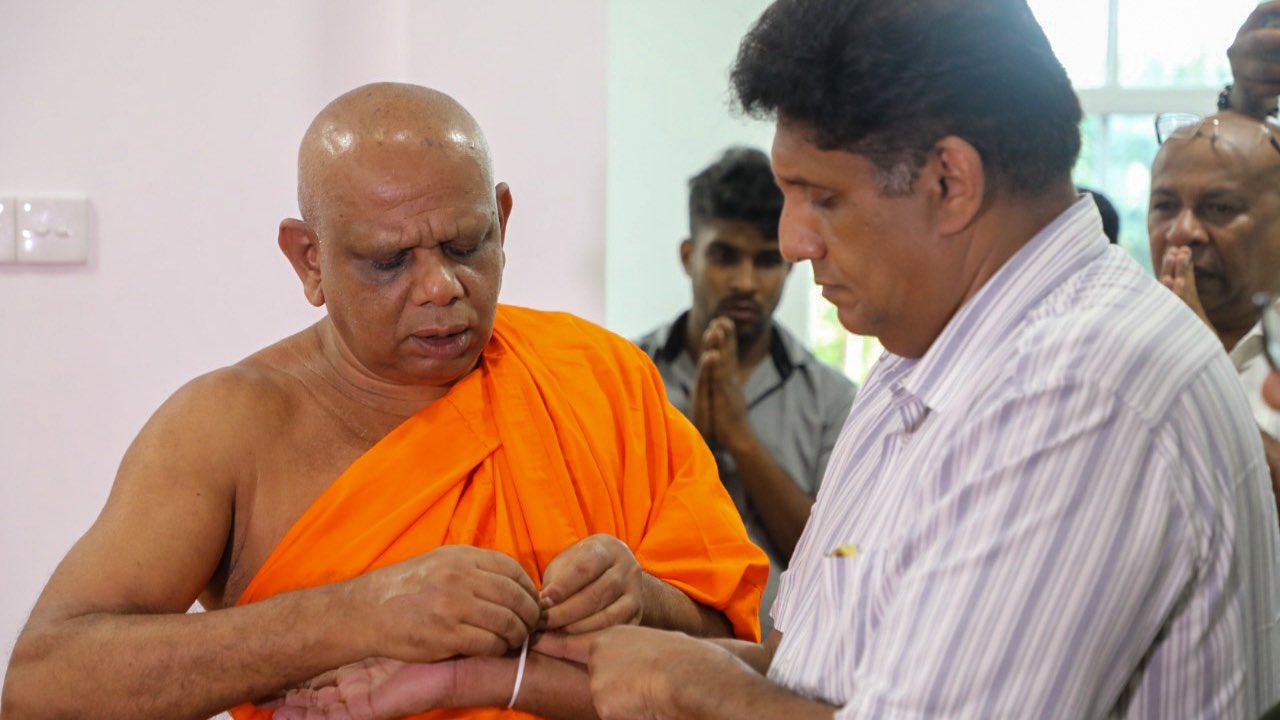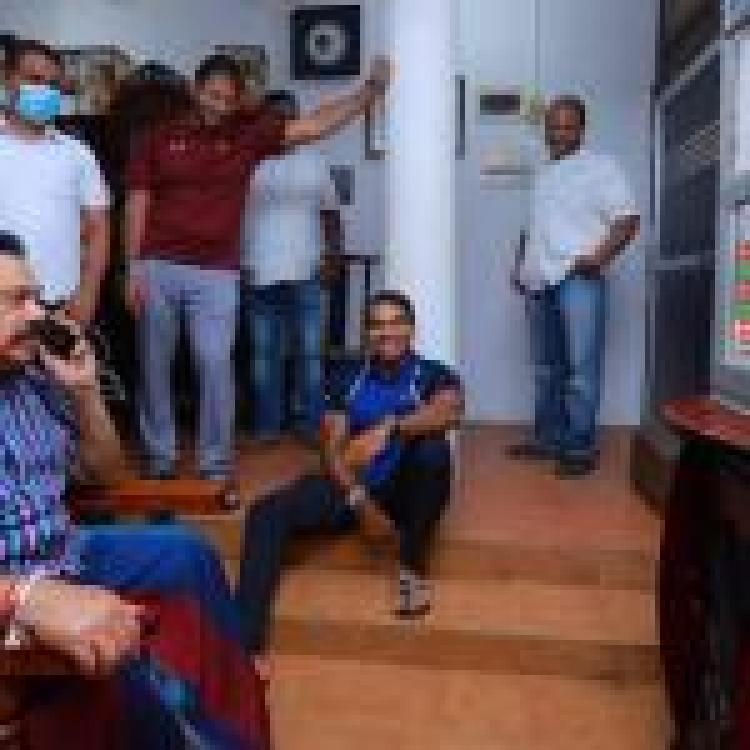![]()
Sri Lanka’s Rajapaksa clan have dominated the island’s general elections this week, with the Sri Lanka Podujana Peramuna (SLPP) sweeping polls on a staunchly Sinhala nationalist campaign and putting the party firmly in control of parliament.
The SLPP secured 145 seats across the island, including through its National List, fulfilling expectations that it would win throughout the South. Alongside its affiliated parties, including paramilitary organisations in the North-East, the Rajapaksas look set to secure a powerful two-thirds majority that will grant the regime the power to make constitutional amendments.
Sri Lanka’s president Gotabaya Rajapaksa and prime minister Mahinda Rajapaksa, siblings who are both accused of overseeing war crimes, have repeatedly spoken on scrapping the 19th Amendment which limits presidential powers. The brothers, who ran a military offensive in 2009 that killed tens of thousands of Tamil civilians, have also spoken out against devolving powers to the Tamil North-East, the only regions the party did not dominate.

The next biggest party on the island was the newly formed Samagi Jana Balawegaya (SJB) led by Sajith Premadasa with 54 seats, as Ranil Wickremesinghe’s United National Party (UNP) recorded a dismal showing with no elected seats. Even in its former stronghold of Colombo, the party only managed to score less than 3% of the vote. Wickremesinghe, who was first elected as an MP in 1977 and has served as prime minister of Sri Lanka three times, lost his seat but may still enter as a National List parliamentarian - the only seat the party managed to secure.
Whilst celebrations took place in the South, there was a sense of fear amongst both Tamil and Muslims in the North-East over the next steps the regime may take.
Since assuming the presidency in November 2019, Gotabaya Rajapaksa has made sweeping institutional changes in Sri Lanka, granting the already powerful military control of various state institutions. As part of a series of moves, Rajapaksa appointed Sri Lankan army chief Shavendra Silva to head the island’s coronavirus task force, even as Silva remains banned from travel to the US over rights abuses.
Alongside the accelerated militarisation of state institutions, the Rajapaksas have also been staunch in the refusal to allow an international accountability mechanism take place, with the Sri Lankan president warning that he may pull out of global bodies if prosecutions for rights abuses were pursued. Earlier this year, the regime pardoned a Sri Lankan soldier who had been convicted of the murder of eight Tamil civilians were killed including three children and has vowed not to allow troops to face prosecution.
In the run-up to the polls ten international human rights organisations expressed their concerns over rising human rights violations that have taken place since Rajapaksa assumed office. “A campaign of fear has intensified,” they said.
Victory in the parliamentary elections now leaves the Rajapaksas in control of the island’s presidential and prime ministerial offices for years to come.

